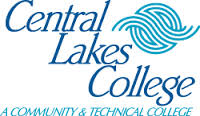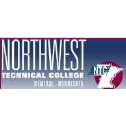What do they do?
Attend to live farm, ranch, open range or aquacultural animals that may include cattle, sheep, swine, goats, horses and other equines, poultry, rabbits, finfish, shellfish, and bees. Attend to animals produced for animal products, such as meat, fur, skins, feathers, eggs, milk, and honey. Duties may include feeding, watering, herding, grazing, milking, castrating, branding, de-beaking, weighing, catching, and loading animals. May maintain records on animals; examine animals to detect diseases and injuries; assist in birth deliveries; and administer medications, vaccinations, or insecticides as appropriate. May clean and maintain animal housing areas. Includes workers who shear wool from sheep and collect eggs in hatcheries.
Also known as:
Barn Worker, Cattle Driver, Cowboy, Egg Gatherer, Farm Hand, Farm Laborer, Farrowing Worker, Hatchery Worker, Herdsman, Livestock Handler, Milker, Milking Worker, Ranch Hand, Rancher, Stable Hand, Vaccinator, Wrangler
-
0%
Change
Ranks #37 in job growth rate210Job Openings
Ranks #35 in net job growth
Looking for colleges that offer a specific major? Use the College Match Tool to find your best-matched schools and discover your estimated Net Price!
- Less than high school diploma (49%)
- High school diploma equivalent (28%)
- Some college, no degree (11%)
- Bachelor's degree (6%)
- Associate's degree (4%)
- Master's degree (1%)
- Doctorate or Professional Degree (<1%)
Most Popular Majors that prepare Farmworkers, Farm, Ranch, and Aquacultural Animals
-
#1
-
Degrees Granted
105
-
Female Students
1
-
Male Students
104
-
Median Starting Salary
$55,200
-
-
#2
-
Degrees Granted
46
-
Female Students
2
-
Male Students
44
-
Median Starting Salary
$47,900
-
-
#3
-
Degrees Granted
9
-
Female Students
5
-
Male Students
4
-
Median Starting Salary
$37,600
-
-
#4
-
Degrees Granted
5
-
Female Students
2
-
Male Students
3
-
Median Starting Salary
$37,600
-
-
#5
-
Degrees Granted
3
-
Female Students
2
-
Male Students
1
-
Median Starting Salary
$37,600
-
People in this career often have talent in:
- Problem Sensitivity - The ability to tell when something is wrong or is likely to go wrong. It does not involve solving the problem, only recognizing that there is a problem.
- Control Precision - The ability to quickly and repeatedly adjust the controls of a machine or a vehicle to exact positions.
- Oral Comprehension - The ability to listen to and understand information and ideas presented through spoken words and sentences.
- Deductive Reasoning - The ability to apply general rules to specific problems to produce answers that make sense.
- Arm-Hand Steadiness - The ability to keep your hand and arm steady while moving your arm or while holding your arm and hand in one position.
People in this career often do these activities:
- Care for animals.
- Examine animals to detect illness, injury or other problems.
- Treat animal injuries or illnesses.
- Prepare materials or solutions for animal or plant use.
- Mark agricultural or forestry products for identification.
- Maintain inventories of materials, equipment, or products.
- Perform animal breeding procedures.
- Operate farming equipment.
- Classify organisms based on their characteristics or behavior.
- Maintain forestry, hunting, or agricultural equipment.
- Package agricultural products for shipment or further processing.
- Transport animals, crops, or equipment.
- Maintain operational records.
- Clean equipment or facilities.
- Remove skin or other body parts from animals.
This page includes data from:

 Occupation statistics: USDOL U.S. Bureau of Labor Statistics Occupational Employment Statistics
Occupation statistics: USDOL U.S. Bureau of Labor Statistics Occupational Employment Statistics
 Videos: CareerOneStop, USDOL/ETA and the Minnesota Department of Employment & Economic Development
Videos: CareerOneStop, USDOL/ETA and the Minnesota Department of Employment & Economic Development








